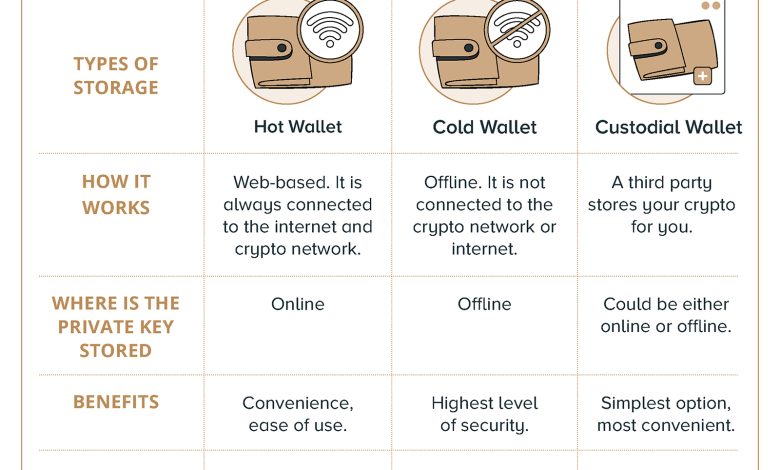How to Buy and Store Cryptocurrencies Safely

- Understanding the basics of cryptocurrency security
- Choosing the right cryptocurrency wallet for your needs
- Tips for securely purchasing cryptocurrencies online
- Best practices for storing your cryptocurrencies offline
- Protecting your private keys and passwords from hackers
- What to do in case of a security breach with your cryptocurrencies
Understanding the basics of cryptocurrency security
When it comes to cryptocurrency security, it is crucial to understand the basics in order to keep your investments safe. Cryptocurrencies are digital assets that are stored in digital wallets, which are secured using private keys. These private keys are essentially the passwords that allow you to access and manage your cryptocurrency holdings.
One of the most important things to remember when it comes to cryptocurrency security is to never share your private keys with anyone. Your private keys should be kept confidential and stored securely. It is also recommended to use hardware wallets or cold storage solutions to store your cryptocurrency, as they are considered to be more secure than online wallets.
Another important aspect of cryptocurrency security is to be cautious of phishing scams and malware. Phishing scams involve fraudulent attempts to obtain sensitive information, such as private keys, by posing as a trustworthy entity. Malware, on the other hand, can infect your devices and steal your cryptocurrency if you are not careful.
It is also a good idea to use two-factor authentication (2FA) whenever possible to add an extra layer of security to your accounts. By requiring a second form of verification in addition to your password, 2FA can help prevent unauthorized access to your cryptocurrency holdings.
Overall, understanding the basics of cryptocurrency security is essential for anyone looking to buy and store cryptocurrencies safely. By following best practices such as keeping your private keys secure, using hardware wallets, being cautious of phishing scams and malware, and implementing 2FA, you can help protect your investments from potential threats.
Choosing the right cryptocurrency wallet for your needs
When it comes to buying and storing cryptocurrencies, choosing the right wallet is crucial. There are several types of cryptocurrency wallets available, each with its own set of features and security measures. It’s important to consider your needs and preferences before selecting a wallet that suits you best.
One of the most popular types of cryptocurrency wallets is a hardware wallet. These wallets store your private keys offline, making them less vulnerable to hacking or cyber attacks. They are considered one of the safest options for storing cryptocurrencies. Another option is a software wallet, which can be either desktop-based or mobile-based. These wallets are convenient and easy to use, but they may not offer the same level of security as hardware wallets.
When choosing a cryptocurrency wallet, consider factors such as security, ease of use, and compatibility with the cryptocurrencies you plan to store. It’s also important to research the reputation of the wallet provider and read reviews from other users. Remember to always back up your wallet and keep your private keys secure to protect your investments.
Tips for securely purchasing cryptocurrencies online
When purchasing cryptocurrencies online, it is crucial to follow certain tips to ensure the security of your transactions. Here are some guidelines to help you buy cryptocurrencies safely:
- Research the exchange or platform you plan to use before making any transactions. Look for reviews and feedback from other users to ensure its credibility.
- Use secure payment methods such as credit cards or reputable online payment services to minimize the risk of fraud.
- Enable two-factor authentication (2FA) on your accounts to add an extra layer of security and protect your funds from unauthorized access.
- Avoid sharing sensitive information such as your private keys or passwords with anyone, as this could lead to potential security breaches.
- Keep your cryptocurrency holdings in a secure wallet, either hardware or software-based, to protect them from cyber threats and hacking attempts.
By following these tips, you can minimize the risks associated with purchasing cryptocurrencies online and safeguard your investments effectively.
Best practices for storing your cryptocurrencies offline
When it comes to storing your cryptocurrencies offline, there are several best practices you should follow to ensure the security of your digital assets. Here are some tips to help you keep your cryptocurrencies safe:
- Use a hardware wallet: One of the most secure ways to store your cryptocurrencies offline is by using a hardware wallet. These devices store your private keys offline, making it much harder for hackers to access your funds.
- Keep backups: It’s important to keep backups of your wallet and private keys in a secure location. This way, if anything happens to your hardware wallet, you can still access your funds.
- Use a secure location: Store your hardware wallet and backups in a secure location, such as a safe or safety deposit box. This will help protect your cryptocurrencies from theft or damage.
- Avoid public Wi-Fi: When making transactions with your hardware wallet, avoid using public Wi-Fi networks. These networks are often insecure and can make you vulnerable to hacking.
- Keep your wallet updated: Make sure to regularly update the firmware on your hardware wallet to protect against any potential security vulnerabilities.
By following these best practices for storing your cryptocurrencies offline, you can help ensure the security of your digital assets and protect yourself from potential threats.
Protecting your private keys and passwords from hackers
Protecting your private keys and passwords is crucial when it comes to buying and storing cryptocurrencies safely. Hackers are constantly on the lookout for opportunities to steal this sensitive information, so it’s essential to take the necessary precautions to keep your assets secure.
One of the best ways to protect your private keys and passwords is to use a hardware wallet. These physical devices store your keys offline, making them much less vulnerable to hacking attempts. Additionally, make sure to choose a strong, unique password for each of your accounts and enable two-factor authentication whenever possible.
It’s also important to be cautious when entering your private keys or passwords online. Avoid accessing your accounts on public Wi-Fi networks, as these connections are often unsecured and can be easily compromised by hackers. Instead, use a secure, private network to minimize the risk of unauthorized access to your information.
Regularly updating your passwords and keeping your software up to date can also help protect your private keys from potential security threats. By staying vigilant and taking proactive measures to safeguard your information, you can minimize the risk of falling victim to hackers and ensure that your cryptocurrencies remain safe and secure.
What to do in case of a security breach with your cryptocurrencies
In case of a security breach with your cryptocurrencies, it is crucial to act quickly and take necessary steps to protect your assets. Here are some important actions to consider:
- **1. Secure Your Accounts:** If you suspect that your cryptocurrency accounts have been compromised, immediately change your passwords and enable two-factor authentication to add an extra layer of security.
- **2. Contact Your Exchange:** Notify your cryptocurrency exchange or wallet provider about the security breach. They may be able to freeze your account or provide assistance in recovering your funds.
- **3. Monitor Your Transactions:** Keep a close eye on your transaction history to detect any unauthorized activity. Report any suspicious transactions to your exchange or wallet provider.
- **4. Transfer Your Funds:** If you believe that your funds are at risk, consider transferring them to a secure wallet that you control. This will help prevent further losses in case of a security breach.
- **5. Stay Informed:** Stay informed about the latest security threats and best practices for protecting your cryptocurrencies. Educate yourself on how to securely store and manage your digital assets.
By following these steps, you can minimize the impact of a security breach and safeguard your cryptocurrencies against potential threats. Remember to stay vigilant and proactive in protecting your investments in the ever-evolving world of digital currencies.



